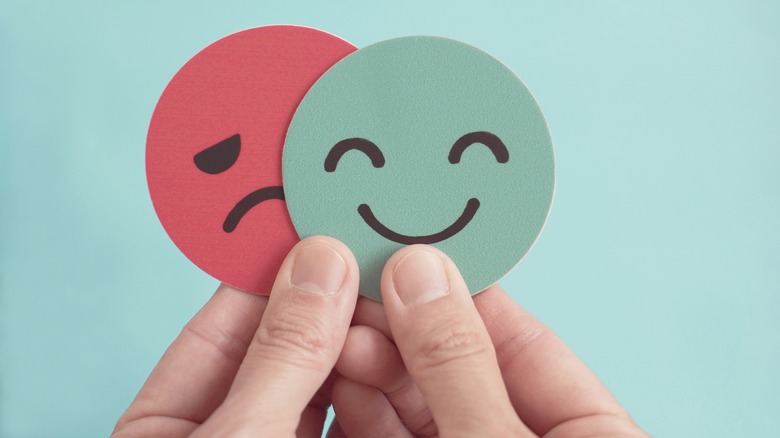Ways That Exercise Helps Bipolar Disorder
Bipolar disorder is a chronic mood disorder that involves extreme shifts in mood, behavior, and energy levels. The key symptoms of bipolar disorder include episodes of mania and depression that interfere with a person's day-to-day life.
According to the Cleveland Clinic, these episodes can last for days, weeks, or even months. As it turns out, there are a few different types of bipolar disorder, including bipolar I, bipolar II, and cyclothymia. People with bipolar I experience at least one manic episode that lasts for a week or longer or requires hospitalization.
While those with bipolar I usually experience both manic and depressive episodes, it's not necessary to experience periods of depression in order to be diagnosed with bipolar I. People with bipolar II, on the other hand, experience both depressive and hypomanic episodes, but never experience full mania. Meanwhile, those with cyclothymia disorder have a chronically unstable mood and experience episodes of mild depression and hypomania.
Exercise can relieve bipolar disorder symptoms for some people
While bipolar disorder is usually treated with therapy and medication, exercise may also help assist these more traditional treatments. According to Healthline, research has shown that adding regular exercise and physical activity to your treatment plan can have a positive impact on some common symptoms of bipolar disorder.
For instance, a 2015 review of studies published in the journal Frontiers in Psychology found that exercises like walking, running, and swimming might have a calming effect and help relieve certain symptoms in some people. For some others, however, working out can have the opposite effect and may even worsen their symptoms.
In addition, a 2013 study published in the International Journal of Bipolar Disorders concluded that a combination of exercise and healthy eating can help reduce symptoms of depression in some people. In others, however, certain forms of exercise might exacerbate symptoms of mania.
Therefore, while regular exercise is recommended for people with bipolar disorder, experts agree that it's best to talk to your doctor before starting a new exercise routine and that you should check in with your doctor if you notice an increase in manic symptoms.
If you or someone you know needs help with mental health, please contact the Crisis Text Line by texting HOME to 741741, call the National Alliance on Mental Illness helpline at 1-800-950-NAMI (6264), or visit the National Institute of Mental Health website.


